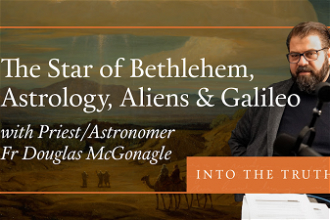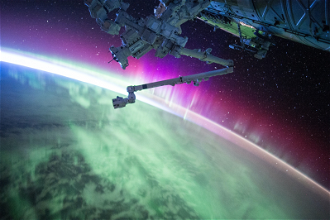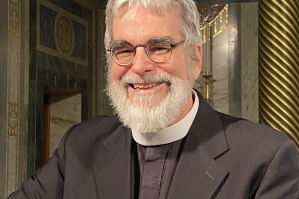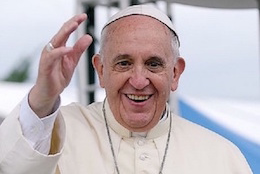Pope reflects on winter solstice, astronomy, prayer and Galileo
Pope Benedict XVI reflected on the relationship between faith and science, before the Angelus with pilgrims in St Peter's Square yesterday.
Beginning with the observation that "the feast of Christmas is connected to the winter solstice, when the days, in the northern hemisphere, start to get longer again," the Pope said: "this highlights the fact that Christ is the son of grace, who, with his light ... transfigures and ignites the expectant universe" , and that the mystery of Christmas also has a "cosmic dimension," in addition to its "historical" one.
He said: "In this regard, perhaps not everyone knows, St Peter's Square is also a meridian. The obelisk, in fact, casts its shadow along a line that runs along the pavement toward the fountain under this window, and in these days the shadow is at its longest of the year. This reminds us of the function of astronomy in marking out the rhythm of prayer. The Angelus, for example, is recited in the morning, at noon, and in the evening, and with the meridian, which was used in ancient times to identify 'true noon', clocks were adjusted."
Recalling that 2009 has been declared by UNESCO and the UN as the "world year of astronomy," Benedict XVI greeted "all those who will participate in various ways in the initiatives for the world year of astronomy, 2009, declared at the 400th anniversary of the first telescopic observations of Galileo Galilei."
Referring to past controversies over Galileo, Holy Father said: "in fact my predecessors of venerable memory included devotees of this science, like Sylvester II, who taught it, Gregory XIII, to whom we owe our calendar, and St. Pius X, who knew how to make sundials."
There is therefore a friendship between faith and science, astronomy and faith. "If the heavens according to the beautiful words of the psalmist, 'proclaim the glory of God' (Psalm 19[18]:2), then the laws of nature, which over the course of the centuries many men and women of science have helped us to understand better, are also a great stimulus to contemplate with gratitude the works of the Lord."
In 1992, Pope John Paul II said the church's denunciation of Galileo's work had been a tragic error. Galileo used his scientific methods to demonstrate that the Earth revolved around the Sun and not the other way around. But his view directly challenged the church's view at the time - that the Earth was static and at the centre of the universe. Galileo was accused of heresy in 1633 and forced to publicly recant his theories. He lived the rest of his life under house arrest at his villa in the hills outside Florence.





















